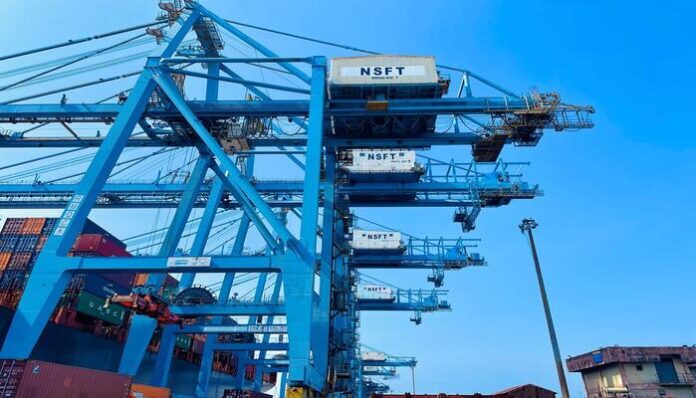
Indian shippers and supply chain stakeholders at Nhava Sheva Port (JNPA) could see significant relief from landside congestion as the port has won government approval for a new access road system.
The project plan calls for a 29-kilometre link from the harbour to the nearest state highway intersection point. To be built on a build-operate-transfer (BOT) model, it is estimated to cost about US$525 million.
“Development of road connecting infrastructure to major and minor ports in India is one of the main focus areas of integrated infrastructure planning under PM Gatishakti National Master Plan principles,” the government said in an official statement.
The statement also said, “With increasing container volume in JNPA port and the development of the Navi Mumbai International Airport, a need was identified for augmenting national highway connectivity in the region.”
The government noted that freight vehicles from the port currently take up to three hours to reach the stretch connecting the highway system due to heavy congestion along the strained route. The bottlenecks are expected to worsen as volumes expand.
The statement explained: “Accordingly, this project is designed to address these connectivity requirements and for improving the logistic efficiency of connecting the JNPA port and Navi Mumbai International Airport.”
It went on to add: “The new six lane green field project corridor will lead to better port connectivity help in safe and efficient freight movement. The project will open new avenues of growth, development and prosperity in developing regions in and around Mumbai and Pune.”
The Nhava Sheva Port complex includes six container handling facilities and cumulatively accounts for a major portion of India’s ocean trade. These terminals have been plagued by truck turnaround delays in recent weeks, prompting pushback from vehicle owners and exporters/importers.
The Indian port is poised to reach an all-time high in cargo volumes in the fiscal year 2024-25, which ends on 31 March. From April 2024 through February, combined volumes surged 13.6% year-on-year to 6.6 million TEUs, according to new data obtained by Container News. Full fiscal year throughput is also estimated to surpass 7 million TEUs.
A 2.4-million TEU capacity addition from Phase 2 development at PSA Mumbai, also known as Bharat Mumbai Container Terminals (BMCT), is targeted to go live next month, setting the stage for even increased cargo movements in and out of the port.
Jenny Daniel
Global Correspondent
Contact email: j.daniel@container-news.com








